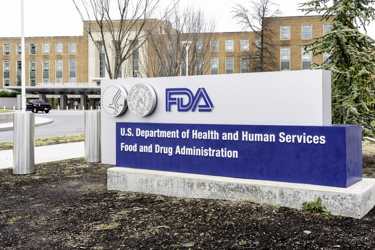What To Expect From The FDA During (And After) COVID-19
By Hannah Yee, Niki Gallo, and Kim Raymer, Halloran Consulting Group, Inc.

The impact of COVID-19 on trial conduct and the regulatory landscape is rapidly changing, requiring continuous attention and adaptation. According to WCG’s COVID-19 resource center, as of April 10, 100+ non-COVID-19 trials had been put on official hold, and only 14 percent of sites are open for enrollment. Stats like this demand that we evaluate the regulatory impacts our industry faces in the wake of COVID-19 and what to expect in the months ahead.
During a recent Halloran Virtual Town Hall meeting, a panel of experts to share what they are seeing in terms of regulatory activity, as some cases are receiving expedited feedback, while others are experiencing delays in reviews and receipt of commentary from the FDA. The discussion covered institutional review board (IRB) review prioritization rationale, regulatory CMC (chemistry, manufacturing, and control) programs, ancillary functions, and other topics. This article presents some key insights from the panel’s experience conducting regulatory activities during the pandemic.
FDA Meetings And Reviews
Already facing resourcing issues before COVID-19, the workload at the FDA‘s Center for Biological Evaluation and Research (CBER) and Center for Drug Evaluation and Research (CDER) is now further complicated. The FDA appears to be prioritizing COVID-19-related programs, which naturally lengthens the timelines of other activities that have been deprioritized in the new environment. Staff from review divisions across the FDA are being reallocated into divisions directly related to the pandemic.
To date, CDER and CBER have continued to meet their standard 30-day initial investigational new drug (IND) review cycles. However, this could change over the next few months due to the influx of new therapies, including those for COVID-19, on top of the FDA’s already record-breaking workload.
Some formal sponsor-FDA meetings have been postponed. No face-to-face meetings are being granted, and often teleconferences are being downgraded to written response only (WRO), as the agency adjusts its resources for efficiency. While sponsors are disappointed to lose an opportunity to interact with the FDA in person, the agency’s written feedback has been very thorough and helpful in such cases.
Also, the FDA has been very realistic and communicative in its timeline appraisals and delay estimates. To keep up with the growing workload, FDA staffers are working days, nights, and weekends to meet deadlines.
To date, we have not seen delays in Center for Devices and Radiological Health (CDRH) device trials. To keep operations flowing, CDRH has been working via teleconference and written response.
The European Medicines Agency (EMA) and U.K. Medicines and Healthcare Products Regulatory Agency (MHRA) have been very communicative. The regulatory agencies convened an emergency task force to manage all COVID-19-related activities, and the guidance the EMA released detailing how to work under COVID-19 circumstances has been very helpful to sponsors.
COVID-19 Programs
CDER requires that information on COVID-19 programs be submitted in a combined format that includes the pre-IND meeting request and briefing document together in a single package to streamline the review process. We have seen a written response only (WRO) for a COVID-19 program returned in as little as 14 days, rather than the typical 60 days.
CBER is providing the following advice to sponsors planning to submit an IND for a COVID-19 program:
- If a sponsor feels that its investigational product may be ready to proceed to clinical use within a matter of weeks, it is recommended to submit an IND rather than a pre-IND meeting request. CBER will do its best to work interactively with the sponsor during the review process.
- If a sponsor does not intend to submit an IND for several months, then a pre-IND meeting request may be the best mechanism to receive input and feedback.
- For concise pre-IND meeting packages (i.e. fewer than 100 pages), CBER may be able to provide WRO back within 21 days.
- The requirements and expectations for pre-IND Meeting Package and IND application content has not changed.
The FDA has issued guidance around plasma products and blood products in general, which covers pathways for use, donor qualifications, patient eligibility, labeling, and recordkeeping.
The agency is willing to work with sponsors to expedite the review process for COVID-19 programs as much as possible, within reason. While the FDA has expedited its regulatory timelines in response to the COVID-19 pandemic, sponsors should not assume decreased scrutiny around thoughtful approaches, data-driven dosing justifications, etc.
General Regulatory Considerations
Changes and updates to existing INDs may be delayed due to institutional review boards (IRBs) at academic medical centers continuing to prioritize COVID-19 programs over life-threatening disease programs. INDs that fall outside these two categories may see impacts on their timelines. This prioritization may continue as a rate-limiting factor into the fall, as a result of the significant backlog the prioritization is creating. For example, the Johns Hopkins Institute for Translational and Clinical Research has detailed its prioritization rationale on its website.
Unsurprisingly, we have seen FDA pre-approval inspections (PAIs) postponed. At this point, all routine inspection activity (domestic and foreign) is suspended, and there has been no indication of when these inspections will resume. Unless a virtual solution surfaces to keep inspections moving, this will become the rate-limiting step ahead of new drug application (NDA) and biologics license application (BLA) approvals.
Members of the Virtual Town Hall panel had seen utilization of virtual audits, which could indicate that virtual inspections are coming soon. To prepare, sponsors should prep their trial master files (TMFs) and examine their video capabilities.
In addition, the panel recommended that sponsors pause inspection activity and transition to preparing a plan to manage the activity backlog when study activity comes back online. This includes, but is not limited to:
- Internal communication plan
- Vendor/partner communication plan
- Documentation plan
- Data integrity reviews
Most U.S. sponsors are choosing to postpone clinical studies due to internal budget/resource considerations, expected recruitment and enrollment difficulties, and/or limited site activity and IRB timelines. However, sponsors pursuing life-threatening indications are continuing their clinical trials.
From the panelists’ perspective, long-term changes to the regulatory landscape due to adjustments made during COVID-19 might include:
- Regulations around telemedicine, virtual visits, and remote monitoring
- Availability of post-licensing patient materials online
- Remote access to electronic medical records (EMRs)
- Changes to FDA structure to support pooling reserve resources for future crises
Conclusion
When considering the regulatory obstacles around starting/conducting clinical trials during a pandemic, sponsors should think beyond the IND. Is it feasible to conduct a clinical trial at this time? Is it possible to wait until health authorities aren’t so heavily burdened and sites are running at normal capacity? Resource shortages, remote monitoring, and protocol amendments are some of the many factors complicating the regulatory landscape right now. We can expect an activity backlog to build over the next few months, which is another reason to limit submissions as much as is feasible for non-life-threatening conditions. Thoughtful delays for some noncritical programs could significantly lighten the load for our reviewers, and hopefully, make the return to normalcy easier when the time comes.
If you would like to be included in future Halloran Virtual Town Halls on COVID-19, please send an email request to halloranhelps@hallorancg.com.
Previous Articles In This Series:
- “Adjusting To Clinical Trial Remote Monitoring During COVID-19: Working Smarter & Safer”
- “Clinical Study Risk Management During The COVID-19 Pandemic”
- “Clinical Study Conduct During The COVID-19 Pandemic — Challenges & Solutions”
- “Assessing The Impact Of COVID-19 On Regulatory Interactions, Inspections, & Audits”
- “8 Significant Risks COVID-19 Poses To Clinical Trials — And How To Mitigate Them”
About The Authors:
 Kim Raymer, VP of regulatory affairs for Halloran, has more than 24 years of professional experience in regulatory affairs, with deep expertise in CMC for investigational and marketed drug products, both small molecules and biologics. She has worked on early development programs, clinical trial applications, global marketing authorizations, and post-approval life cycle management. Raymer develops regulatory CMC strategy and often serves as the lead author of regulatory CMC submissions. In addition, she also contributes to overall regulatory strategy for early development programs, health authority agency interactions, and regulatory project management. Before joining Halloran, Raymer was in a leadership role within the regulatory CMC group at ARIAD Pharmaceuticals.
Kim Raymer, VP of regulatory affairs for Halloran, has more than 24 years of professional experience in regulatory affairs, with deep expertise in CMC for investigational and marketed drug products, both small molecules and biologics. She has worked on early development programs, clinical trial applications, global marketing authorizations, and post-approval life cycle management. Raymer develops regulatory CMC strategy and often serves as the lead author of regulatory CMC submissions. In addition, she also contributes to overall regulatory strategy for early development programs, health authority agency interactions, and regulatory project management. Before joining Halloran, Raymer was in a leadership role within the regulatory CMC group at ARIAD Pharmaceuticals.
 Niki Gallo, an associate principal consultant at Halloran, has over 12 years of experience in regulatory affairs and drug development, covering cell and gene therapies, small molecules, and therapeutic biologics, with an emphasis on the disease areas of CNS, immuno-oncology and oncology. Gallo leads early key milestone development activities such as generating overall program development strategy, initial interactions with the FDA, original IND applications and subsequent FDA milestone meetings, and expedited pathways discussions following the generation of clinical data. Before joining Halloran, she was the regulatory lead for a global Phase 3 program for FORUM Pharmaceuticals.
Niki Gallo, an associate principal consultant at Halloran, has over 12 years of experience in regulatory affairs and drug development, covering cell and gene therapies, small molecules, and therapeutic biologics, with an emphasis on the disease areas of CNS, immuno-oncology and oncology. Gallo leads early key milestone development activities such as generating overall program development strategy, initial interactions with the FDA, original IND applications and subsequent FDA milestone meetings, and expedited pathways discussions following the generation of clinical data. Before joining Halloran, she was the regulatory lead for a global Phase 3 program for FORUM Pharmaceuticals.
 Hannah Yee, MPH, a consultant at Halloran Consulting Group, has experience in clinical research, product management, and product design in health technology. Her focuses are in organizational change, process improvement and design, root cause analysis, human-centered design, and user/patient experience. She has recently worked with early- and commercial-stage companies on systems implementations, organizational redesign, and change management in both the pharma and medical device industries. Prior to joining Halloran, Yee worked as a human factors engineering consultant at Emergo by UL, where she supported usability evaluations of medical devices for regulatory compliance and design.
Hannah Yee, MPH, a consultant at Halloran Consulting Group, has experience in clinical research, product management, and product design in health technology. Her focuses are in organizational change, process improvement and design, root cause analysis, human-centered design, and user/patient experience. She has recently worked with early- and commercial-stage companies on systems implementations, organizational redesign, and change management in both the pharma and medical device industries. Prior to joining Halloran, Yee worked as a human factors engineering consultant at Emergo by UL, where she supported usability evaluations of medical devices for regulatory compliance and design.
